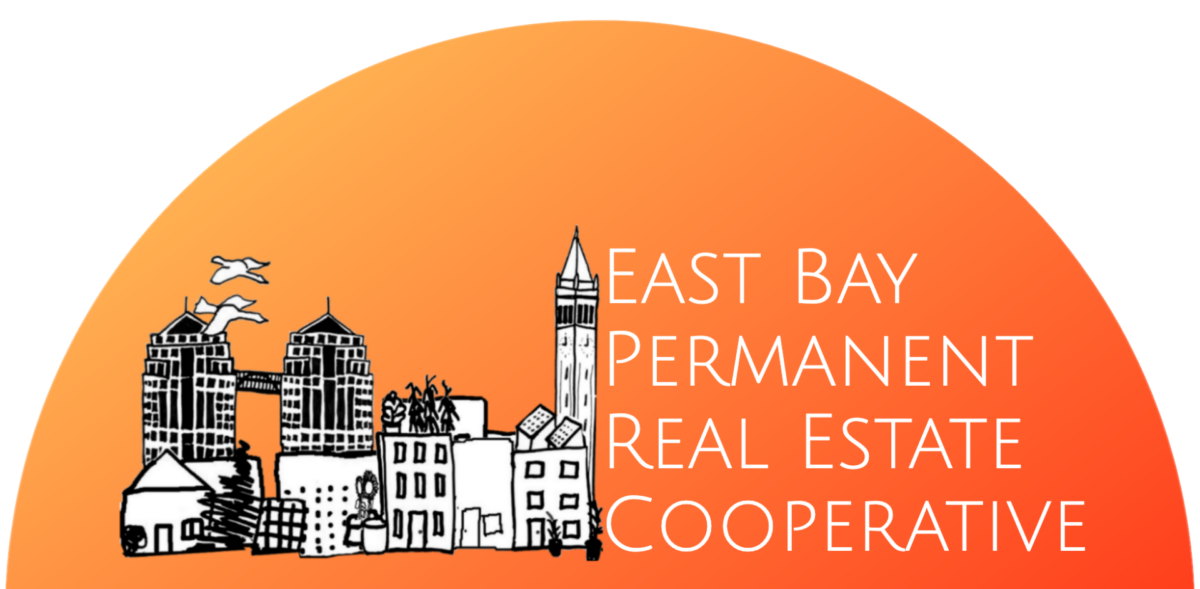Asset Funders Network introduces the Equity Amplifier for Economic Security (EA), a new monthly spotlight series highlighting organizations or nonprofits focused on building economic security/asset building in communities of color.
DOWNLOAD AN INFO SHEET ON EBPRC
 East Bay Permanent Real Estate Cooperative (EB PREC) is a community-centered real estate and housing development cooperative that has expended efforts to help BIPOC and allied communities to cooperatively organize, finance, purchase, occupy, and steward properties, so that they can get permanently off the speculative market. In fact, they help create community-controlled assets and empower communities to shift from an extractive capitalist system to a regenerative one. Their approach has advanced racial equity in different areas and has impacted communities in meaningful ways. By introducing Esther’s Orbit Room Cultural Revival Project (https://ebprec.org/esthers), EB PREC has made an explicit commitment to advancing racial equality and economic opportunity for Oakland and the Black Arts community for generations to come. Their organization reflects the makeup of their communities as well: in fact, their executive director is a Black woman; the majority of their board of directors are Black women and include Indigenous representation; and their staff is majority POC.
East Bay Permanent Real Estate Cooperative (EB PREC) is a community-centered real estate and housing development cooperative that has expended efforts to help BIPOC and allied communities to cooperatively organize, finance, purchase, occupy, and steward properties, so that they can get permanently off the speculative market. In fact, they help create community-controlled assets and empower communities to shift from an extractive capitalist system to a regenerative one. Their approach has advanced racial equity in different areas and has impacted communities in meaningful ways. By introducing Esther’s Orbit Room Cultural Revival Project (https://ebprec.org/esthers), EB PREC has made an explicit commitment to advancing racial equality and economic opportunity for Oakland and the Black Arts community for generations to come. Their organization reflects the makeup of their communities as well: in fact, their executive director is a Black woman; the majority of their board of directors are Black women and include Indigenous representation; and their staff is majority POC.
Q&A with EB PREC Executive Director Noni Session
Please provide the name of your organization.
East Bay Permanent Real Estate Cooperative.
Where are you headquartered?
Oakland, CA.
What is your organization’s mission or vision?
We facilitate BIPOC and allied communities to cooperatively organize, finance, purchase, occupy, and steward
properties, taking them permanently off the speculative market, creating community controlled assets, and
empowering our communities to cooperatively lead a just transition from an extractive capitalist system into one
where communities are ecologically, emotionally, spiritually, culturally, and economically restorative and regenerative.
Which of the following areas of service BEST describes your organization? (Select one)
Community improvement.
Does your organization identify as BIPOC led? What does that look like within your organization? (ie: “We are an organization in which the majority of the Board of Directors are Black and the executive leadership is Latino/Latinx.”)
Yes, our executive director is a Black woman, the majority of our board of directors are Black women and has Indigenous representation, and our staff is majority POC.
Provide an example of a program or initiative that your organization is spearheading that works to advance economic opportunity and prosperity for BIPOC communities.
Once known as the Harlem of the West, 7th street was a thriving Black Business district, with Esther’s Orbit Room at the center of its culture and music scene. Through an innovative community-driven development plan led by EB PREC, Esther’s Orbit Room Cultural Revival Project (https://ebprec.org/esthers) will become a cultural and economic asset for Oakland and the Black Arts Community for generations to come.
“We recognize that one of the failures of community development and neighborhood improvement work is the separation of BIPOC communities from critical conversations.”
How does your work impact communities and populations that are historically marginalized, underserved and/or under-resourced?
Property has long been a tool used to oppress people of color. The impacts of slavery, redlining and municipal disinvestment reverberate through our built environment. We’re bringing hope to our community, with a visible pathway to collective ownership and transformation.
In particular, EB PREC is committed to serving the most underserved members of our Oakland community. Our membership comes out of rooted East Bay communities and organizations: culture keepers, legacy residents, artists, and activists. EB PREC’s Staff Collective provides technical assistance to these BIPOC-led groups to identify, purchase and steward properties that are strategic to fighting displacement and building community wealth, including homes, multi-unit buildings, and commercial properties.
We recognize that one of the failures of community development and neighborhood improvement work is the separation of BIPOC communities from critical conversations, networks and resources necessary for ownership and the stewardship of resources. There is a lack of resources, technical skills and long-term support for these communities. As a movement-based, power-building Cooperative, EB PREC does much more than provide access to land and housing: we provide the organizational, network, financial, and technical supports that increase our community’s ability to self-organize around land and housing solutions in Oakland and the East Bay.
What are some specific barriers or biases from within philanthropy that you believe are hindering organizations led by persons of color in accessing adequate funding or support?
As a BIPOC-led start-up with a membership demographic that largely does not benefit from historical financial privilege, financing & underwriting for our initial acquisitions has been challenging. We are grateful to have found mission-aligned Funders for the Esther’s Orbit Room project who worked past these historic barriers, and to have used our DPO offering to raise money from everyday people who want to right these injustices. As we continue to have more successful projects, we hope the capitalization process will become easier by developing more credibility and relationships with financial institutions and foundations, and to continue to build our fund through
our DPO, while developing additional alternative financial tools in partnership with integrated capital providers who are trying to figure out how to support community-led work like ours.
Name one thing funders need to be cognizant of when connecting or partnering with nonprofits or organizations focused on building economic security/asset building in communities of color.
We would like for funders to be cognizant of the origin of the wealth they are deploying and how it intersects with BIPOC communities. In particular, it is important to recognize that foundation wealth, like all other forms of accumulated wealth in the U.S., can be directly traced back to both historical and current economic practices of extraction and exploitation that have disproportionately harmed BIPOC communities. In this sense, foundation investments in BIPOC community organizations is an important step towards repairing and healing this harm.
About the Equity Amplifier
The EA serves as a space where philanthropy can engage with communities of color and examine how funders are addressing concerns in a manner that is intersectional and inclusive. Each month, AFN members will have the opportunity to access organizations and nonprofits in communities of color that are focused on economic security and asset building, including an informational brochure and a brief interactive virtual video presentation.
As a benefit of AFN membership, funders may nominate local nonprofits focused on building economic security/asset building in communities of color to highlight as part of the EA series. AFN members will also receive the opportunity to participate in a brief interactive virtual video presentation that will be shared with national AFN membership, allowing your organization to showcase innovative models and best practices to help build a more secure future for diverse communities.
How can funders get involved?
Funders who wish to learn more about EB PREC, contact https://ebprec.org.
For more information or to nominate an organization or nonprofit led by people of color for the AFN EA, visit our website or contact AFN at info@assetfunders.org.


